As consumers become more conscious of their shopping habits, they’re looking not only for sustainable products but businesses dedicated to being environmentally friendly in all aspects of their operations.
Shipping is an essential part of running an online business, with close to 600 million items mailed on a daily basis in the United States alone. The way these purchases are packaged and shipped has a major impact on the planet—and customers are taking note.
We spoke to eight merchants about their business journeys and how they’re packaging, shipping, and fulfilling their orders with the environment in mind. Here are some of their tips for sustainable packaging and shipping:
- Offer carbon-neutral shipping by offsetting emissions
- Ship items in bulk
- Use sustainable packaging that can be repurposed
- Offer a returns program for your empty product containers
- Recycle on behalf of your suppliers and offer shipping-friendly items
- Work with wholesalers to reduce individual shipments and limit return shipping
- Reduce the size of your packaging
- Use compostable mailers
Offer carbon-neutral shipping by offsetting emissions
Eric and Yana Dales met while doing humanitarian aid work in Dhaka, Bangladesh. Being in a garment manufacturing hub, the Dales saw the environmental and social drain from fast fashion’s use of unsustainable raw materials and labor conditions. Instead of complaining about the bigger players, they decided to create the fashion company they wanted to see in the world.
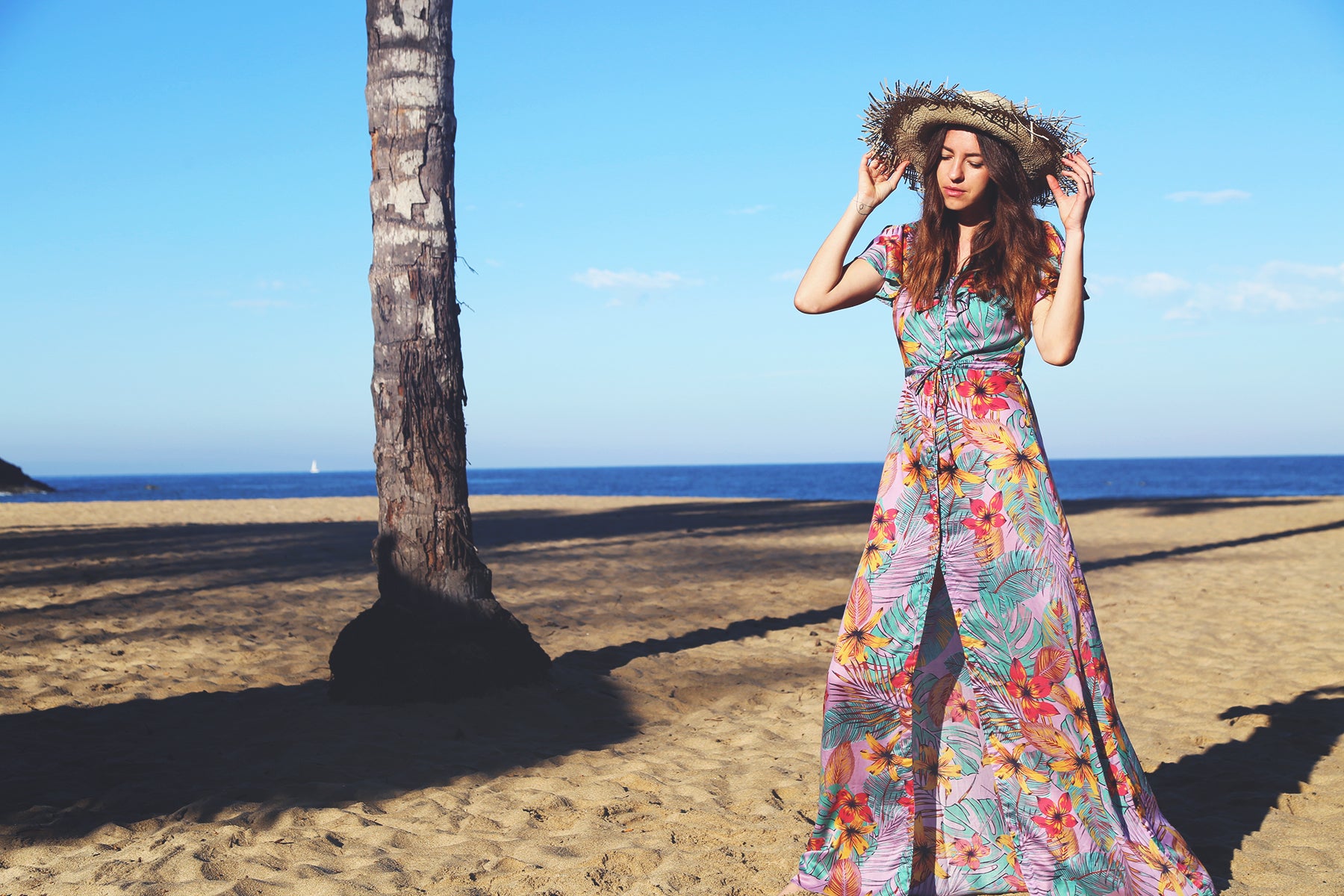
The couple startedTAMGA Designsto create a sustainable movement within the fashion industry and build a company that is style, people, and planet conscious. Their main objective is to not contribute to the deforestation taking place in ancient Indonesian jungles. They found a production partner that produces fabric from sustainably grown eucalyptus and beechwood trees to create pieces colored with low-impact dyes. As they’ve successfully scaled, Eric notes that their garments are sourced in Asia, travel to their facilities in Canada, then ship out to consumers in more than 25 different countries.
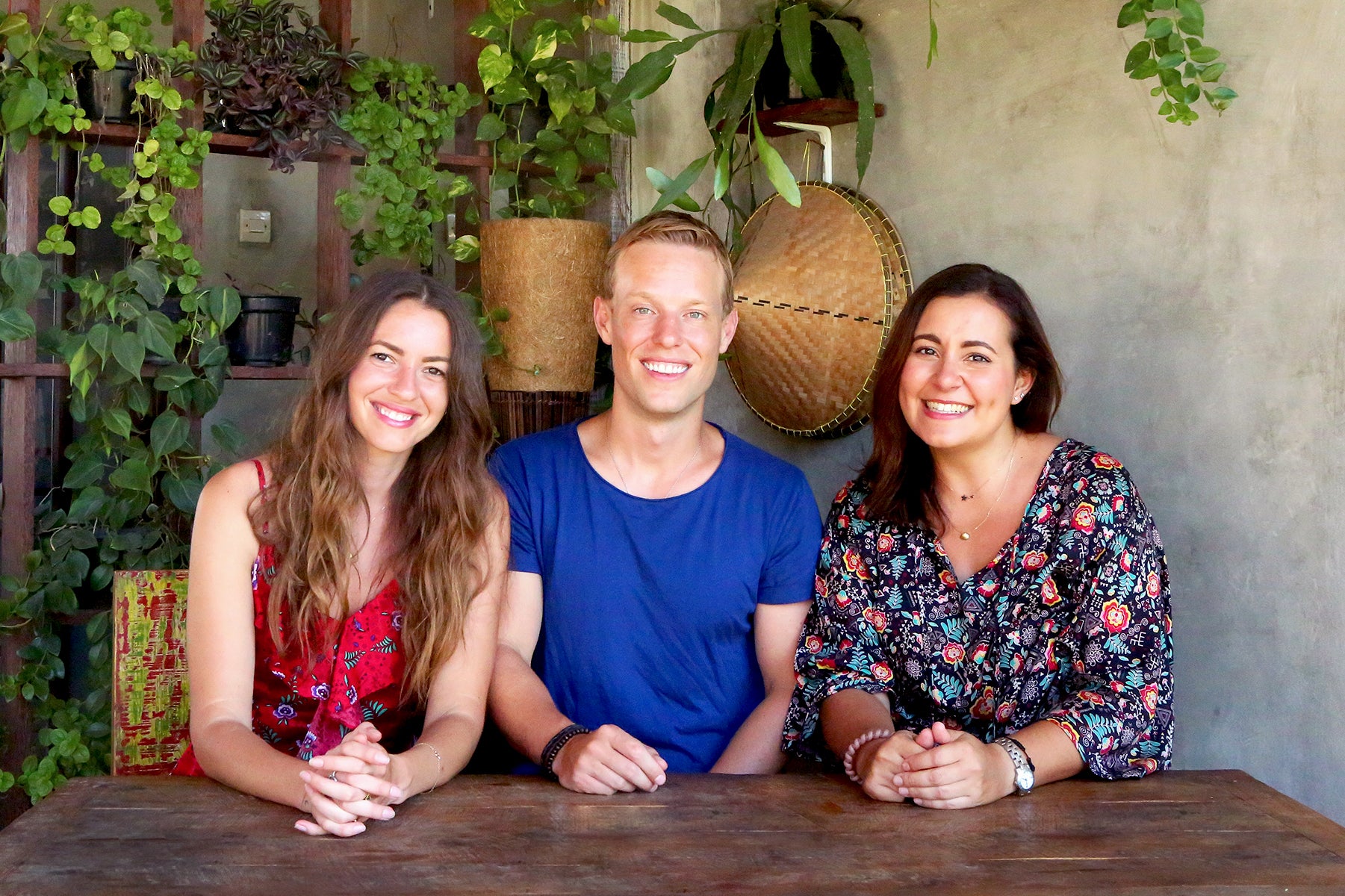
With all the miles that their garments are traveling, the Dales set their sights on becoming a carbon-neutral company by offsetting the emissions that came from fulfilling orders. “We looked at the carbon emissions per kilometer per kilogram of garments on different modes of transportation,” says Eric. “We have a big spreadsheet and at the end of the month, we put together a tally and purchase offsets on those emissions.” TAMGA shares its process openly in the hope of creating systems other business will follow.
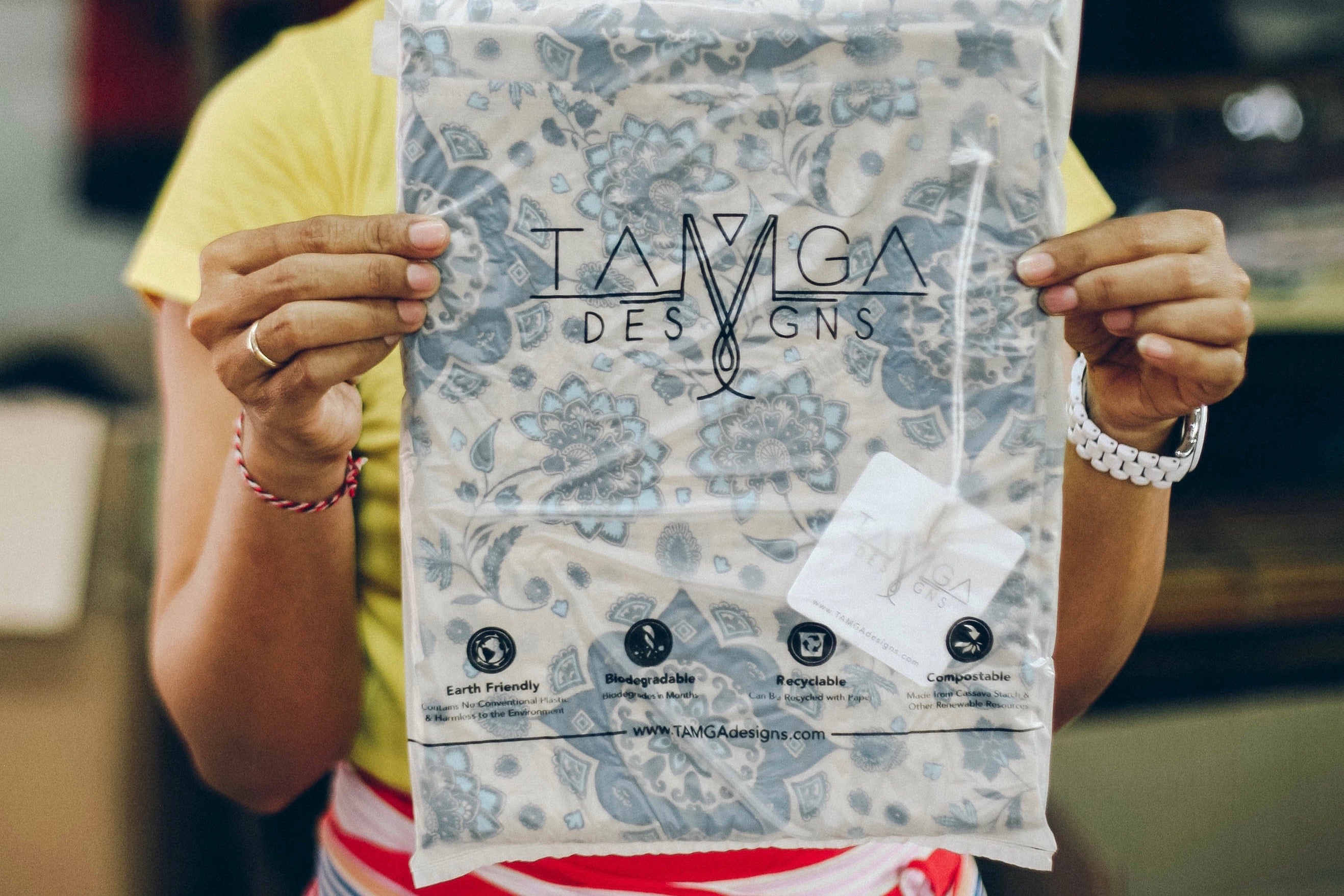
TAMGA Designs packages each of its garments in 100% biodegradable cassava-based mailers that require no air exposure to compost. Eric believes financial costs incurred and the time invested for research are well worth the effort. “It’s really important for small businesses to know this isn’t something that is going to take away from their profitability,” he says. “In the long run, we honestly believe it’s a net-positive impact on our bottom line because customers do see it and they do value it.”
Ship items in bulk
Harriet Simonis, David Fragomeni, and Scott Ferguson first became friends while living in Bali. When surfing the local waves, they were distressed to find that the ocean was overflowing with single-use plastics and discarded fishing nets. That moment served as the catalyst to adopt the zero-waste lifestyles they still practice today. As they searched for plastic-free and environmentally friendly products, they realized something ironic. “A lot of eco-friendly products come affixed in plastic,” Harriet says. “It almost undoes the good.”
Determined to create a solution without the same compromise, the trio founded“零浪费”Cartelto offer environmentally friendly bath, body, and kitchen products in packaging that’s either reusable or biodegradable.

Their pledge to go plastic-free came with its own set of distinct challenges. For example, Harriet says the company had a hard time finding a warehouse that would actually use the compostable mailers they provided because of the additional time and effort involved. They’ve since found a suitable partner in the United States, where most of their orders are placed, which further reduced their environmental impact by shortening the shipping distance between warehouse and customers.

“We prefer to ship in bulk, for the dual reason that it’s a better value for customers and better for the environment too,” Harriet says. Living up to their commitment to stay environmentally conscious has even required a few firm stances. For example, Zero Waste Cartel only sells its bamboo toothbrushes in packs of 10 to encourage customers to plan their purchases or share orders, so that products can ship in a more sustainable manner. What might otherwise seem like an inflexible policy has resonated with Zero Waste Cartel’s customers, who see value in bulk purchases for the planet and their own wallets.
Use sustainable packaging that can be repurposed
Since 2016, Roth Martin and Stephen (Hawthy) Hawthornthwaite have created beautifully designed, durable, machine-washable footwear made from plastic water bottles, under the monikerRothy’s. With products that place style and sustainability on equal footing, Rothy’s counts Duchess of Sussex Meghan Markle and supermodel Karlie Kloss as fans.
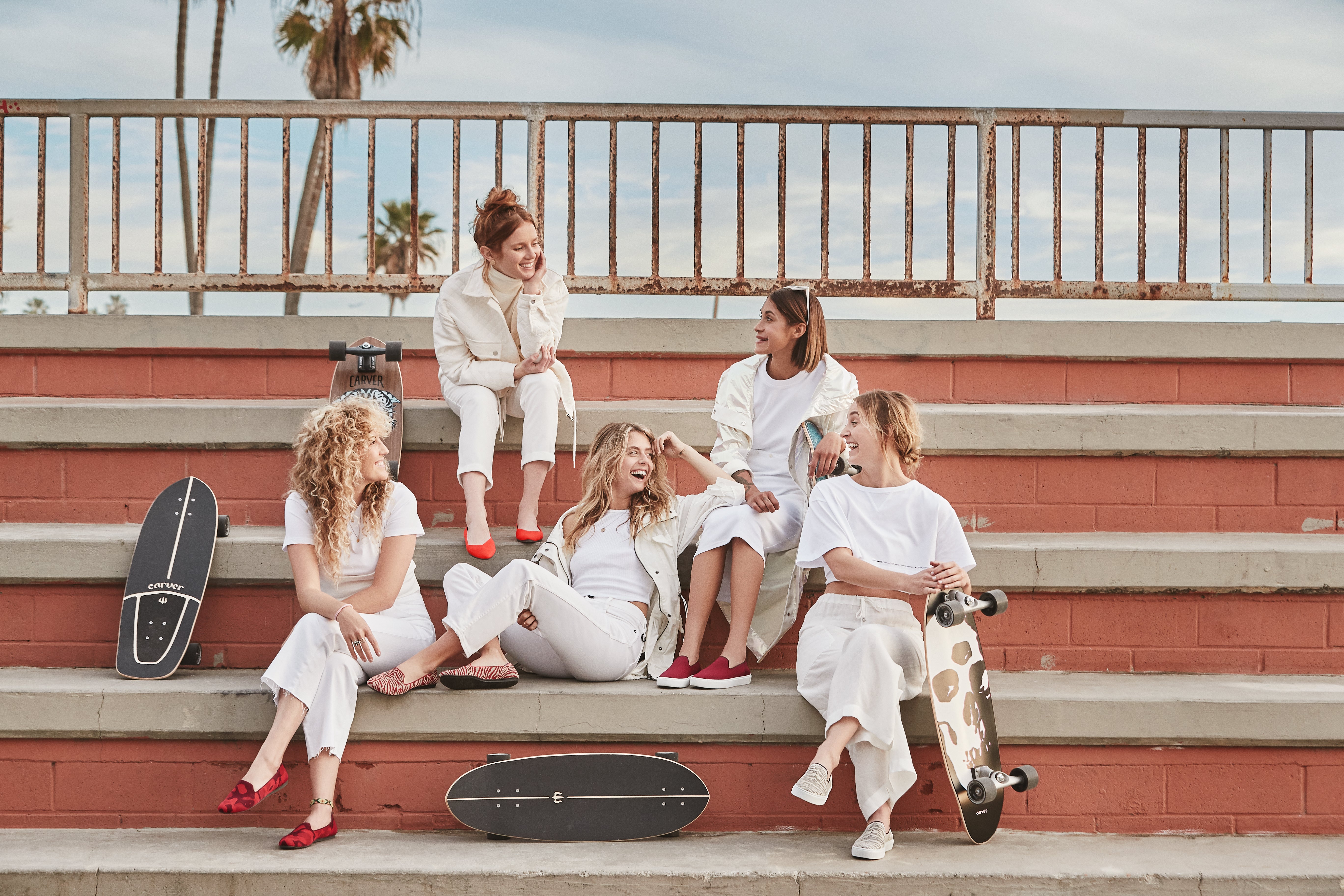
Lauren Taflinger, Rothy’s director of production, says the company has repurposed more than 34 million water bottles to date. Rothy’s production process also knits shoe uppers to shape, which creates virtually zero waste, unlike traditional cutting, where 30% to 40% of material is wasted. Like TAMGA Designs, Rothy’s also offsets its carbon emissions from production and fulfillment by partnering withthe Envira Amazonia Projectto fund ecosystem services and forest conservation projects.

Rothy’s team took alogical approach to reduce waste. “Rather than shipping a box within a box, our shoeboxes are the vehicle for both shipping and returns,” Lauren says. Rothy’s vegan, biodegradable boxes are made from 85% post-consumer recycled materials, and the team currently is exploring how to take advantage of existing real estate on the inner box and wrapping paper to avoid the extra printing of care and return cards. This way, Rothy’s hopes to reduce the additional use of paper cards and make their boxes even more versatile.
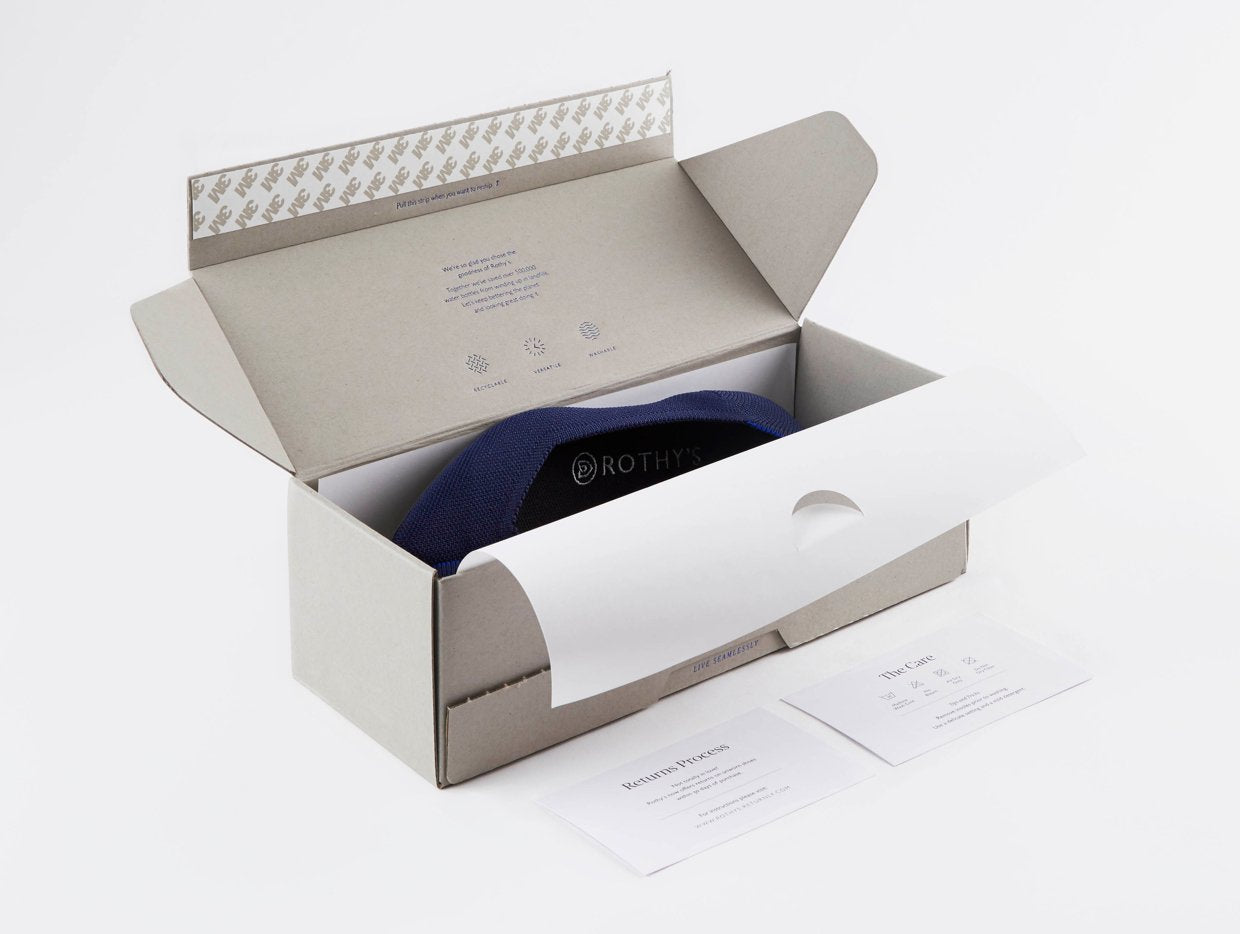
When it comes to sustainability, Rothy’s take, from products to packaging, is all about reimagining the details so that every component of a customer’s order produces less waste.

The Shopify guide to shipping and fulfillment
提高客户满意度销售gr在开车owth for your ecommerce business with an effective shipping and fulfillment strategy. Use this guide to create a plan that covers all aspects of shipping and fulfillment, from how much to charge your customers to choosing the right fulfillment method.
Get our shipping and fulfillment guide delivered right to your inbox.
Almost there: please enter your email below to gain instant access.
We'll also send you updates on new educational guides and success stories from the Shopify newsletter. We hate SPAM and promise to keep your email address safe.
Offer a returns program for your empty product containers
Visual artists Tara Pelletier and Jeff Kurosaki are the life and business partners behindMeow Meow Tweet, an organic skincare company that features adorable animal illustrations on its sustainable packaging. The couple’s love of animals, also the motivation behind their vegan lifestyle, eventually inspired them to create products made with organic unrefined plant oils, cold-pressed essential oils, and botanicals.
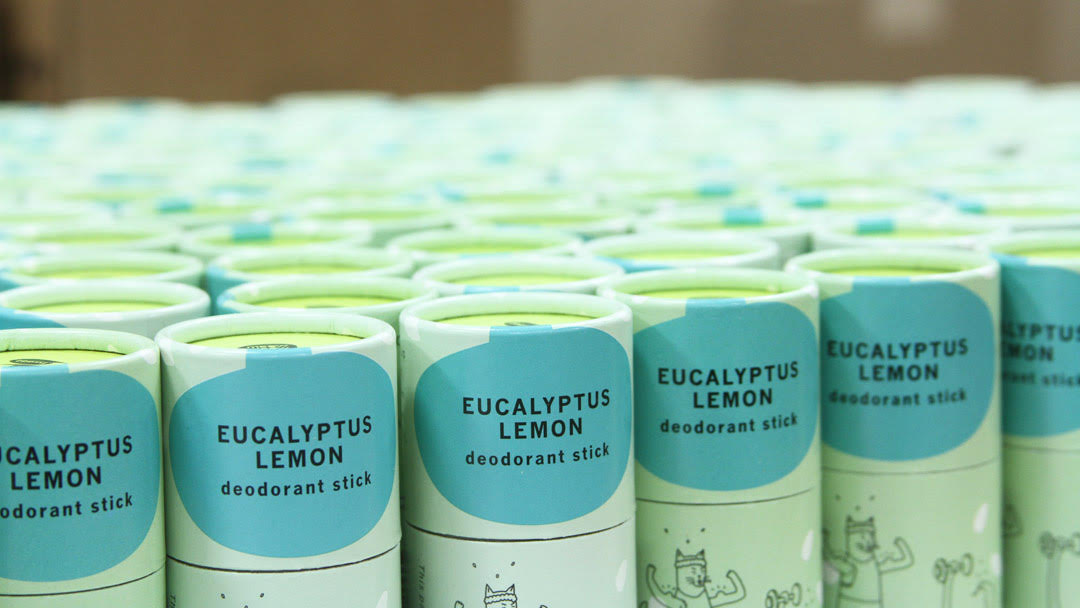
Jeff and Tara want everything they create to either return back to the earth or be reusable. In pursuit of that goal, they use biodegradable packing peanuts and non-reinforced paper tape throughout their shipping process. Their solid products, like deodorants, soaps, and lip balms, come in biodegradable paper packing, while liquid products like cleansers, toners, and sunscreen, require glass or aluminum bottles and sometimes plastic pumps that need to be recycled byTerraCycle, a company that offers various programs for hard to recycle items.
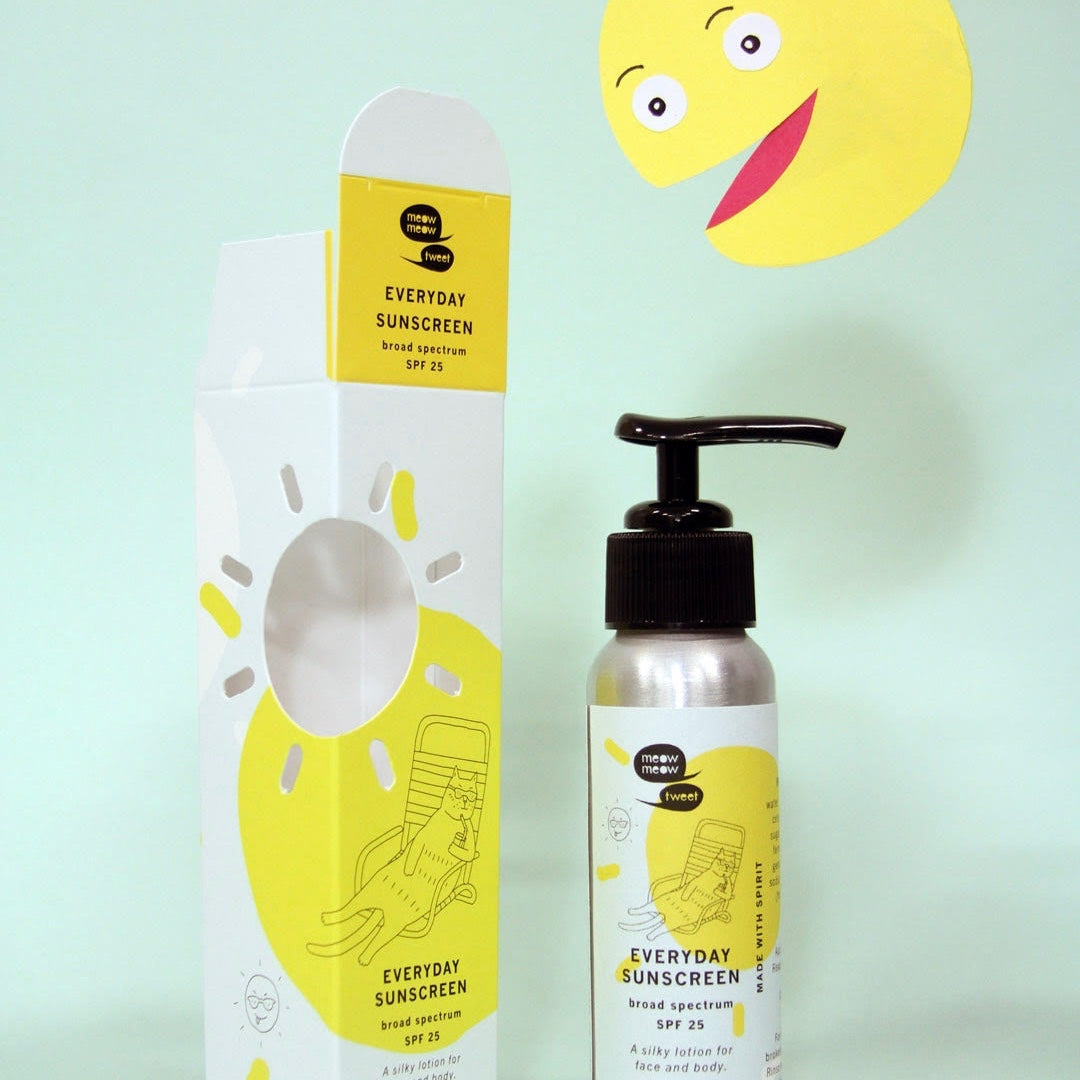
Reuse and repurposing are two of Meow Meow Tweet’s core principles. The company offers a bulk return program for its empty bottles and containers throughReturnly, a Shopify app that allows customers to easily mail empties back to be sterilized and refilled with more Meow Meow Tweet products. With this system in place, customers are embracing the imperfections of dents and scuffs, while reducing the impact of disposable culture.
Recycle on behalf of your suppliers and offer shipping friendly items
In 2017, husband and wife team Lily and Max Cameron foundedWild Minimalistto offer sustainable alternatives to single-use plastic items. “We serve this growing community of people that want to move away from mindlessly consuming things that end up in a landfill,” says Max. Wild Minimalist sells bamboo cutlery, reusable coffee cups, produce bags, and wooden cleaning brushes that can replace sponges, providing simple alternatives to the many disposable items people use every day.
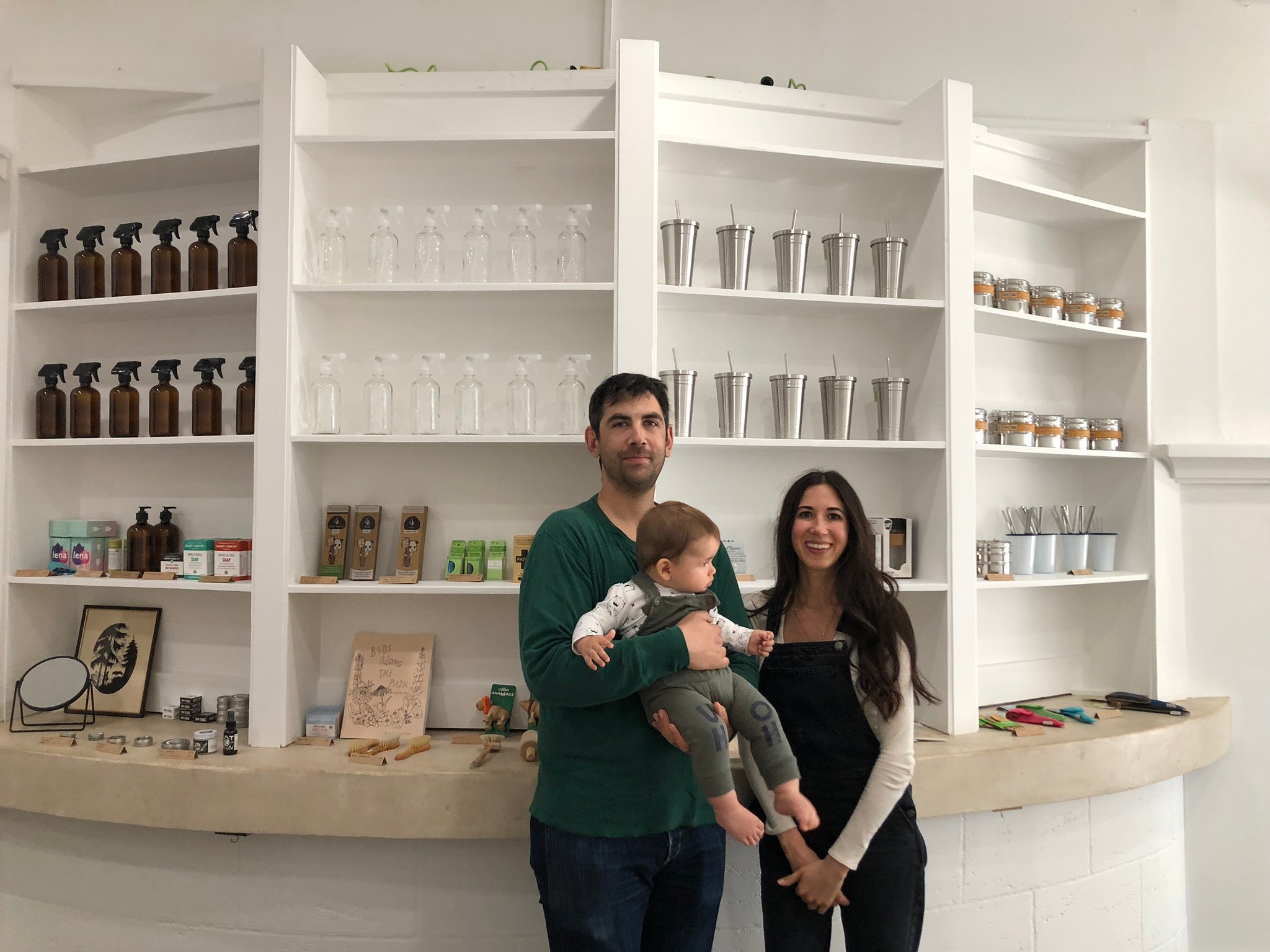
Unfortunately, U.S. regulations require that items imported into the country be wrapped in plastic, but there’s no requirement for these plastic packages to be recycled. The Camerons now ask suppliers to ship items in their original packaging so that they can complete the recycling process on their behalf and avoid any unnecessary waste caused by repackaging. “We want to take responsibility for the upstream waste where we can,” says Max.
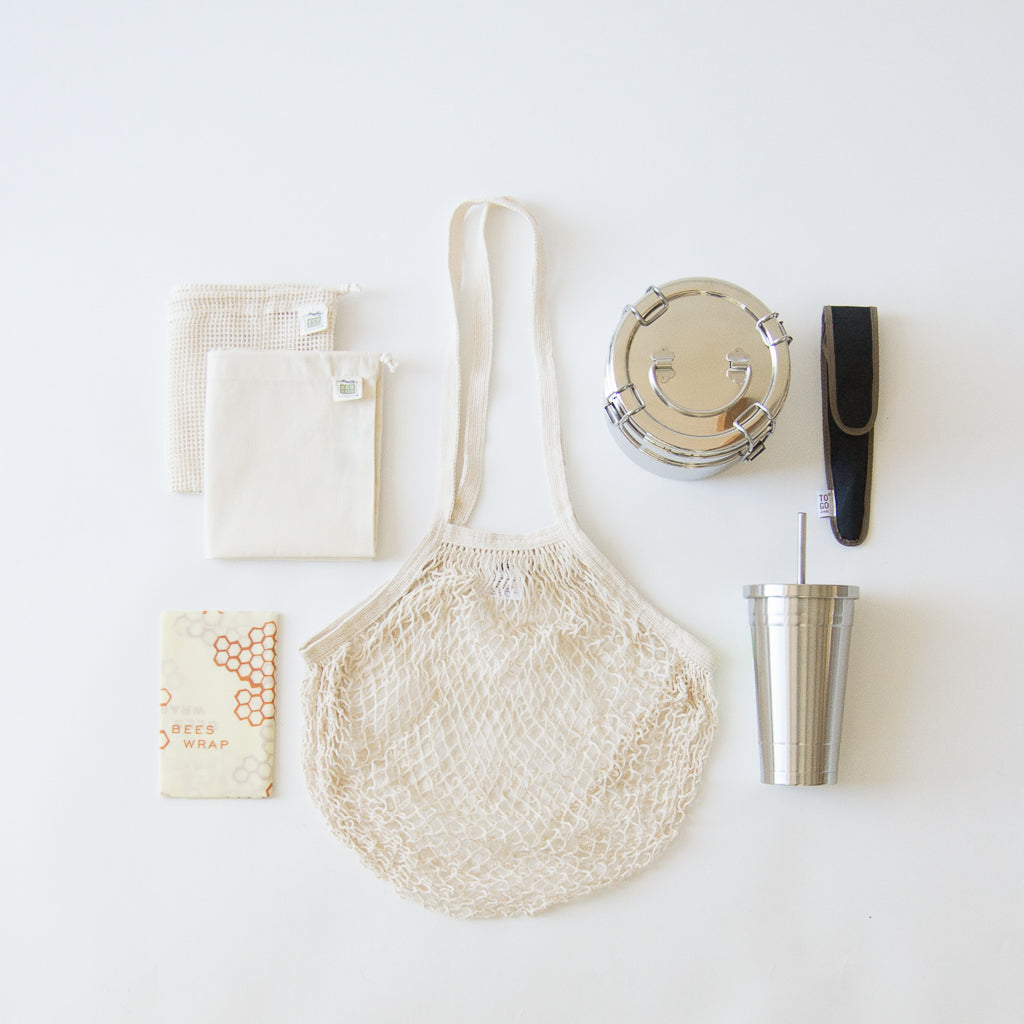
Lily and Max have also adapted their product offerings to ship easier and have a lower carbon footprint. “We used to carry a lot of glass jars, which are very popular in the zero-waste community,” says Max. But shipping glass requires bubble wrap, so Lily and Max made the decision to adjust their product offerings and no longer carry glass items. From taking responsibility for upstream waste and adjusting their product line, Lily and Max are operating with a sustainability-first mentality in all areas of their business.
Work with wholesalers to reduce individual shipments and limit return shipping
In the beauty industry, it seems like there’s an unavoidable trade-off between sustainability and effectiveness. That’s the exact issue Arden Teasdale and Hayley McKenzie, founders ofUnwrapped Life,着手解决。“我们想要确保任何products from our company have very limited to no impact at their end of life,” Arden says. Unwrapped Life’s signature shampoo and conditioner bars come wrapped in compostable paper, leaving behind virtually no waste.
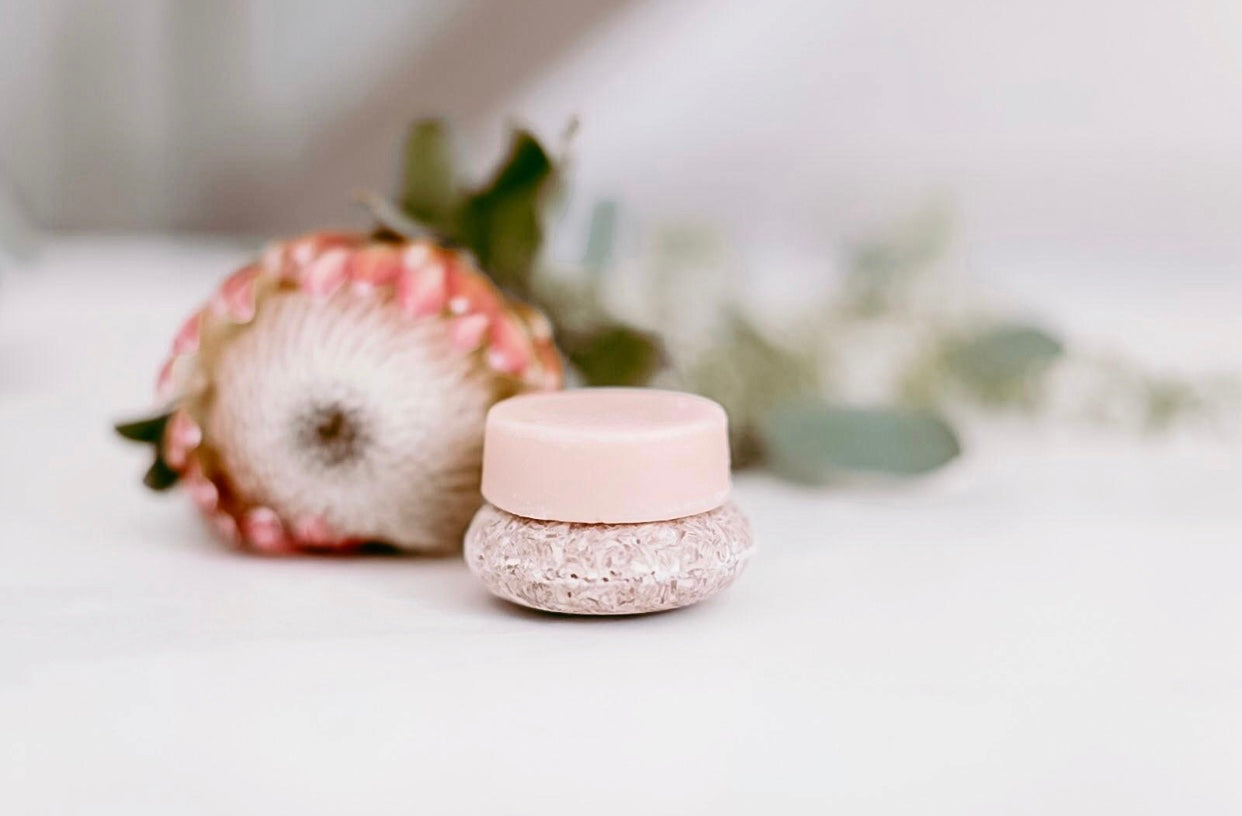
This no-waste mentality is also being adopted in other areas of the company’s operation. “Our entire packaging process is paperless. We’re fulfilling and shipping orders off of phones and tablets, without printing packing slips,” says Arden. Employees have also wholly embraced this mentality by ditching single-use plastics and adopting reusable drinkware and compostable coffee filters for the office. “We've all really changed our lifestyles to cater to this company and its mission,” Arden says.
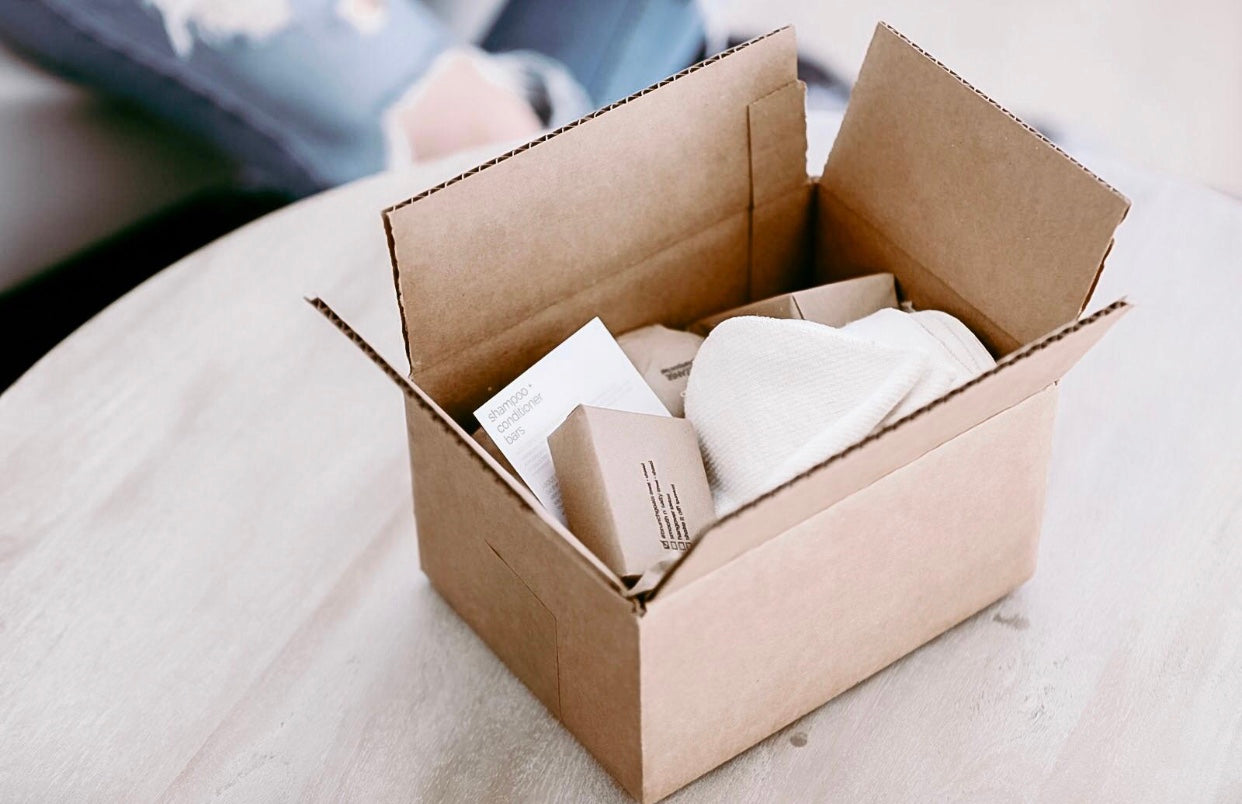
Arden and CFO Allison Teasdale are now hard at work finding fulfillment centers that can commit to their strict no-waste and no-plastic policy. In the meantime, beyond their online store, they have stockists all over North America that act as their distributors. Allison says they partnered with many retailers by shipping large orders to local stores to reduce their carbon footprint and meet the demands of their customers geographically.
Arden also highlights the company’s unconventionalreturn policy—they don’t offer one. “We stand against and do not accept returns,” she says. “We want people to slow down and think about their purchase and make sure that they’re making the right decision.”
Reduce the size of your packaging
The bedding and mattresses made byHoly Lamb Organicshave attracted a loyal following that includes rave reviews from O, The Oprah Magazine and Diane Sawyer. Part of the appeal can be attributed to husband and wife team Jason and Mindy Schaefer’s steadfast adherence to a zero-waste production process.
“Our production model is carefully designed to make the most effective use of every cut, and any excess in a cut is used for something else,” Mindy says. The same goes for the company’s wool suppliers, who use cardboard rolls and craft paper for their packaging, while scraps can be sent back to their suppliers to be repurposed.
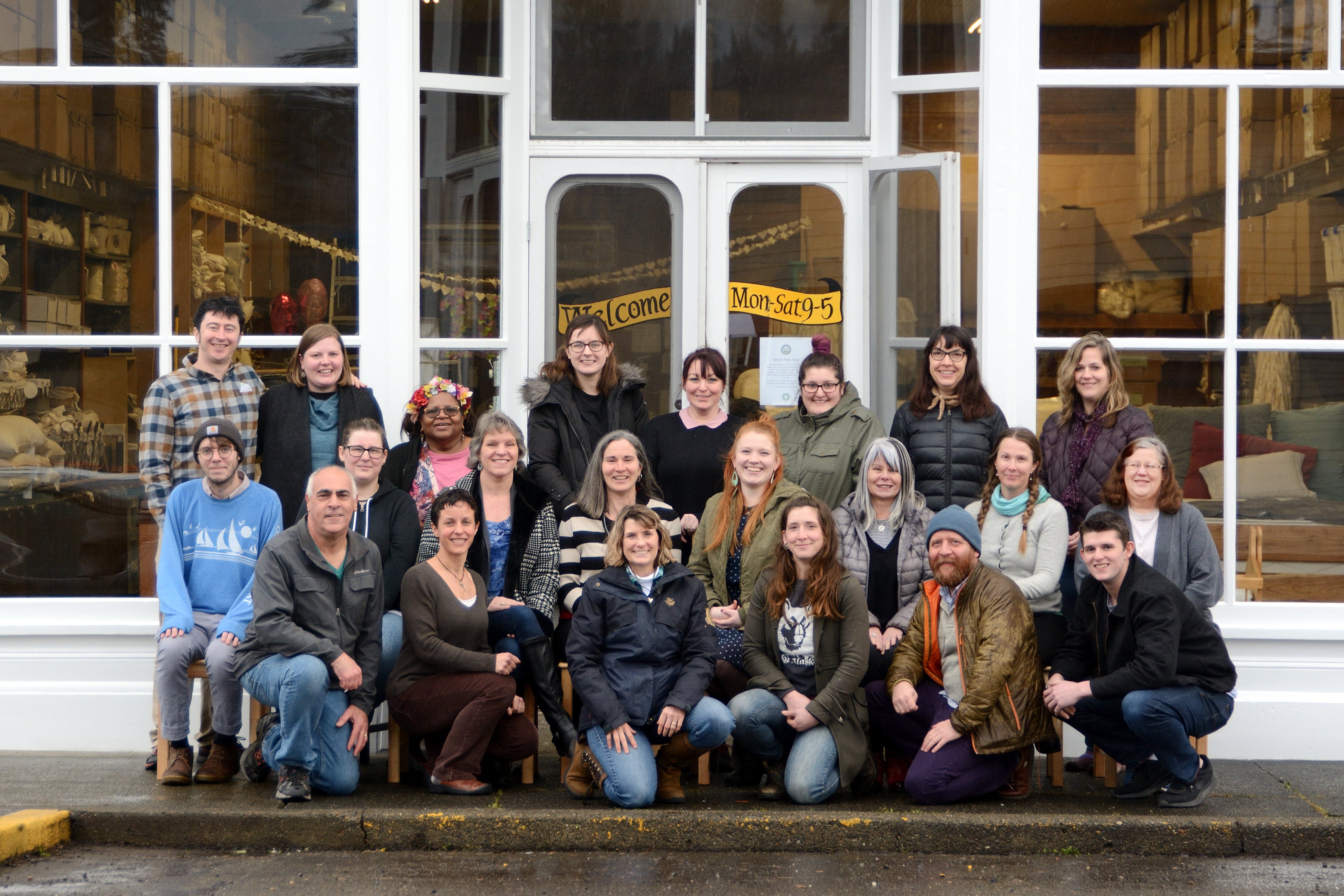
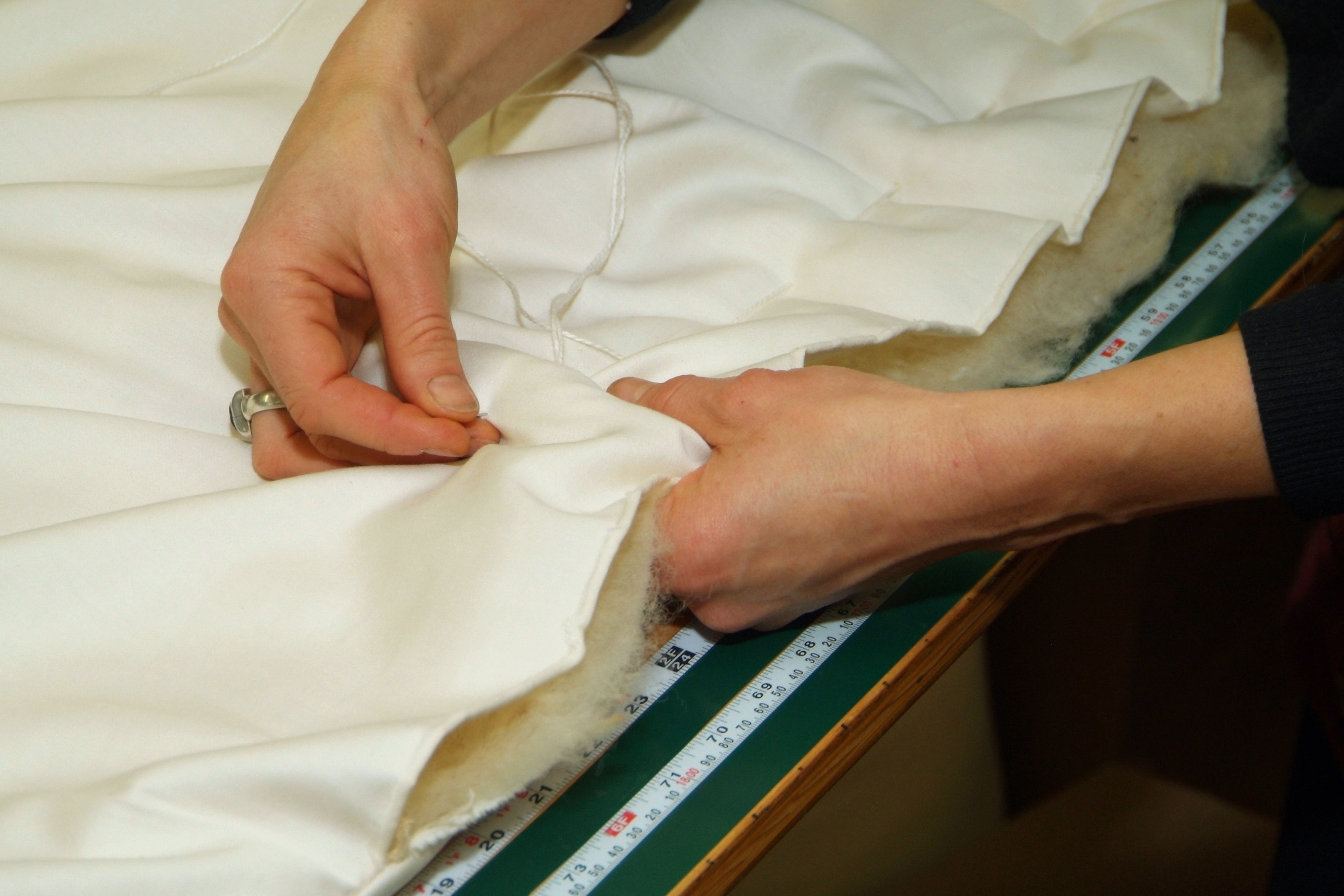 The efficient cutting and repurposing of scraps allow Holy Lamb Organics to achieve a virtually zero-waste production process.Holy Lamb Organics
The efficient cutting and repurposing of scraps allow Holy Lamb Organics to achieve a virtually zero-waste production process.Holy Lamb Organics
When it comes to shipping, the Holy Lamb Organics team has a knack for getting their items to fit into smaller packages. “We keep our boxes as light as possible by not adding extra collateral or material, and vacuum sealing all mattresses so they ship smaller,” says Jason. For all the other shipping and logistics components they cannot control, Mindy says the team uses a carbon offset program to help mitigate the effects.
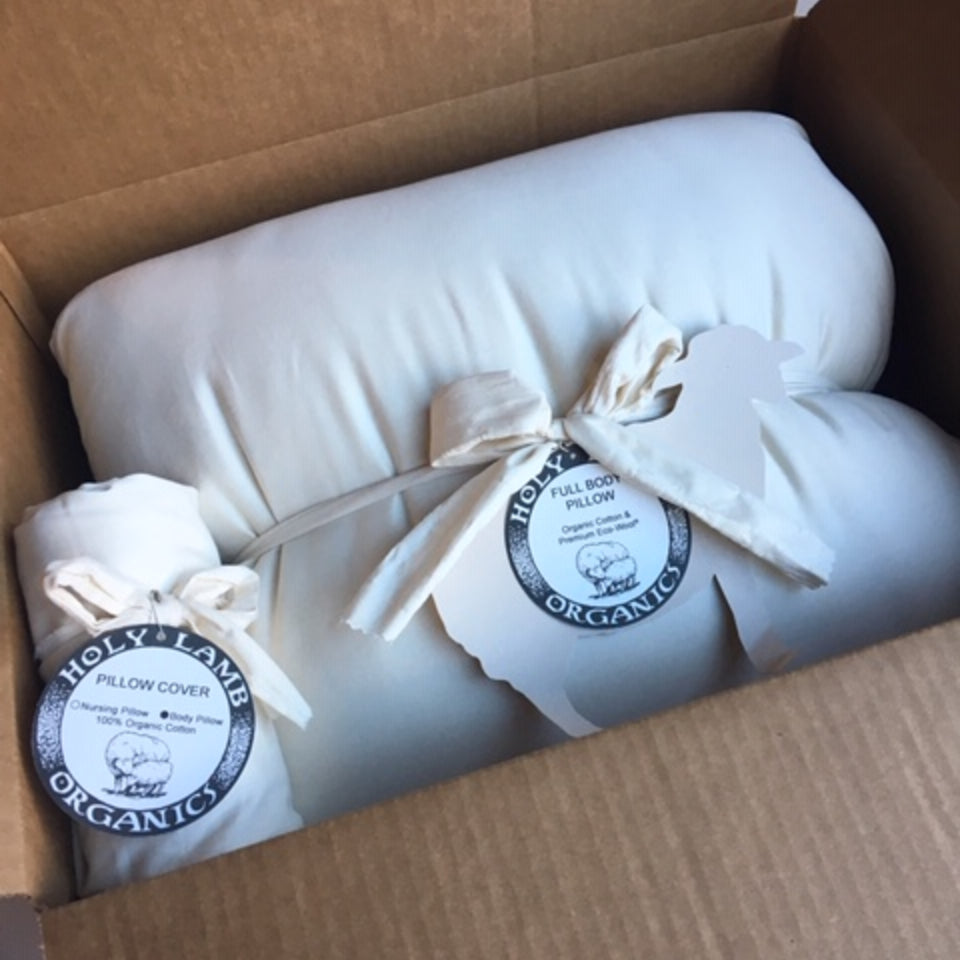
Holy Lamb Organics has come a long way since its early days when founder Willow Whitton sold bedding out of a repurposed school bus. Up next for the team is exploring fulfillment partners who can help shorten the distance of each shipment by having their products stored at warehouses closer to the majority of their orders, and to double-down on their wholesale partners.
Use compostable mailers
The biggest theme we see in our list of merchants’ sustainable shipping and packaging practices is compostable and biodegradable packaging. Speaking to this growing area of focus for many retailers,Hero Packagingis a supplier dedicated to making 100% compostable mailers.
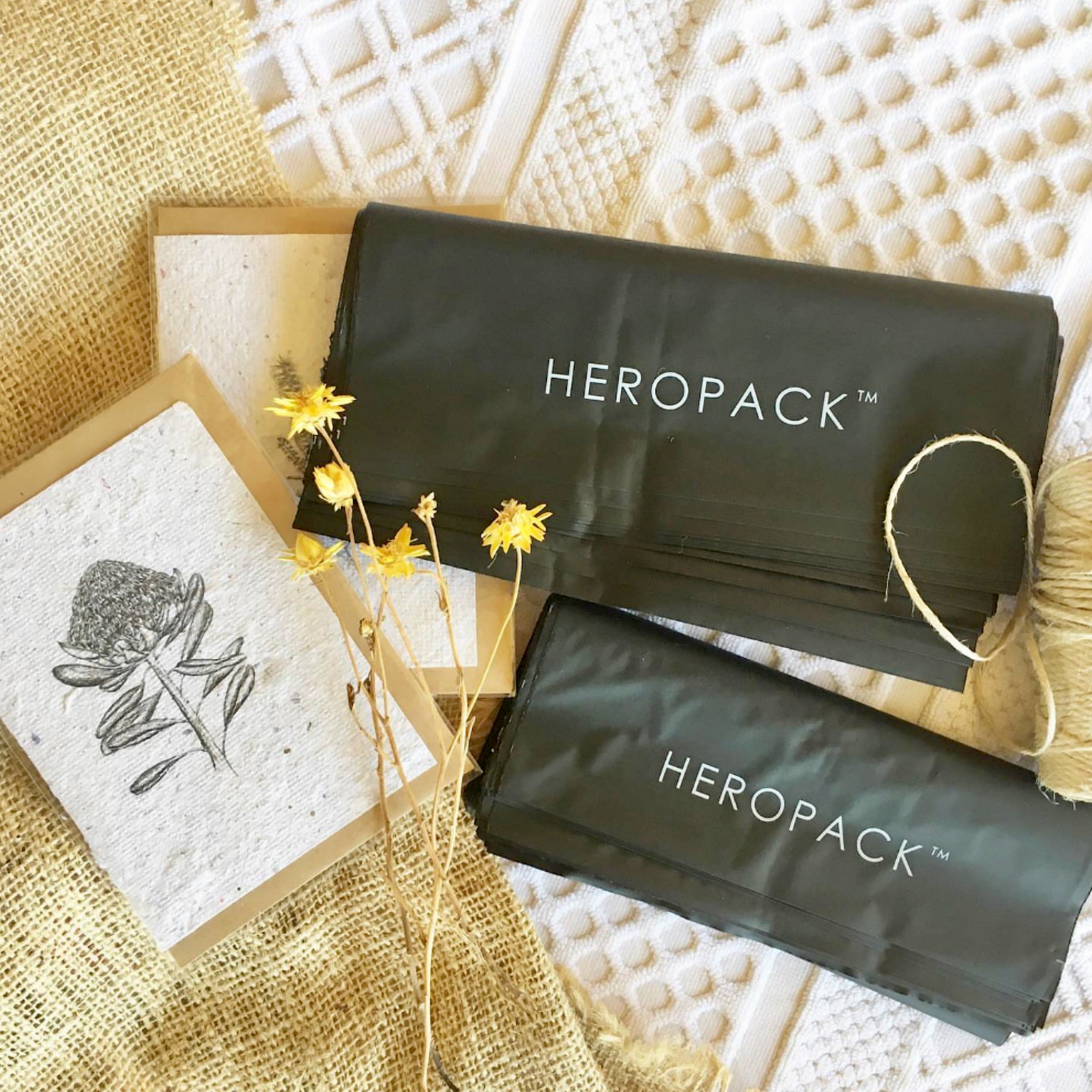
Life and business partners Anaita Sarkar and Vik Dave were originally running a fashion business when they realized how much plastic waste went into fulfilling their orders. “We were throwing away a lot of packaging from suppliers then having to repackage things again, adding to the world's plastic and landfill woes,” Vic says.
So they took matters into their own hands. “We did some digging and found out that you can actually have compostable shipping labels and mailers to replace plastic,” says Vik. The material Hero Packaging found is “made up of 30% to 40% cornstarch and cassava roots. The rest is made up of polybutylene adipate terephthalate, a biodegradable polymer that acts as a bonding agent for the mailers.”
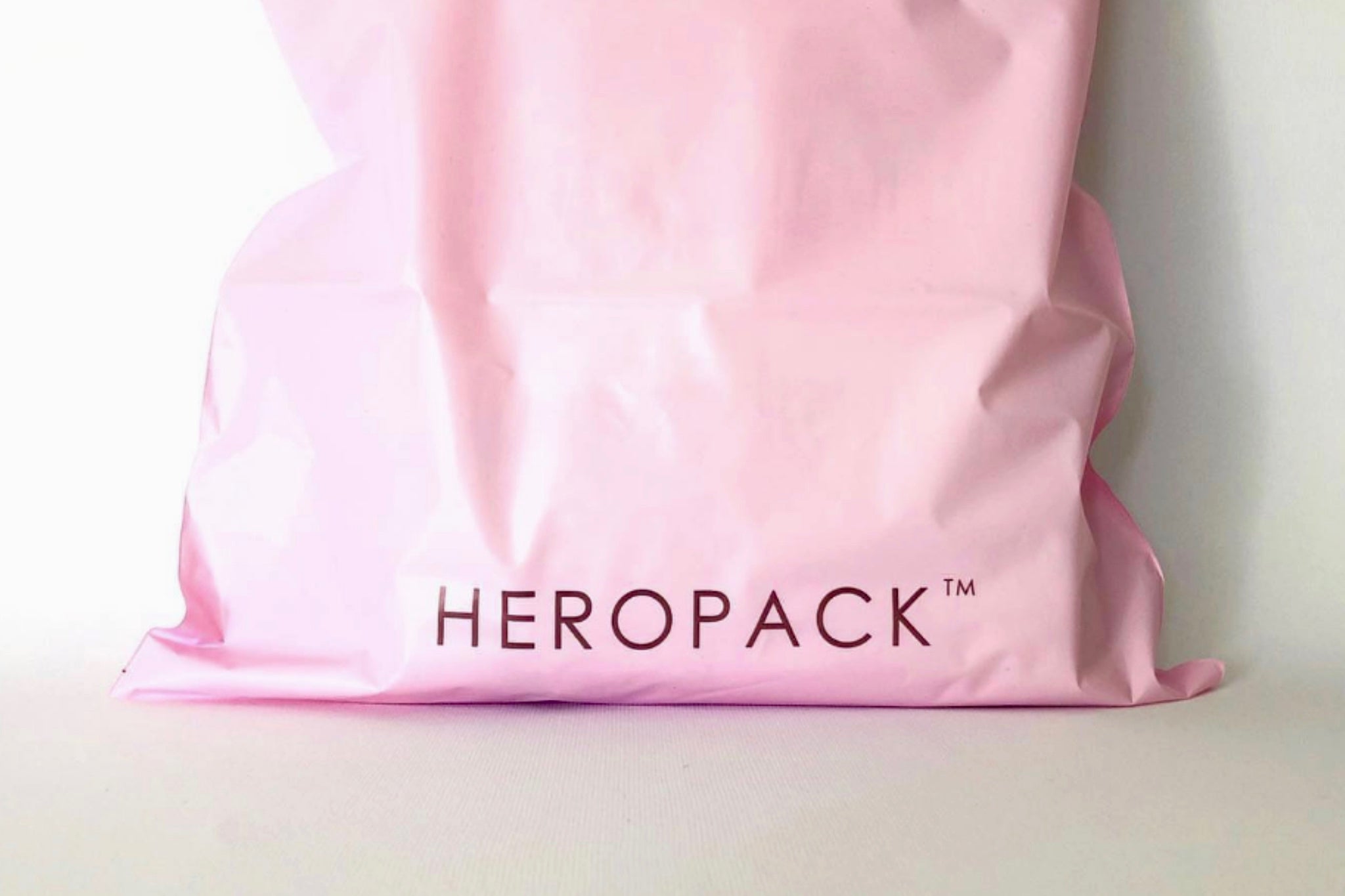
Now that business has taken off in their native Australia, Vik and Anaita have begun seeing a large portion of sales from North America. To respond to newfound demand, they’re keen to start partnering with fulfillment centers in the U.S. Vik jokes that “being a business which is essentially located at the bottom of the Earth makes it difficult to viably ship heavy boxes to different parts of the world.” The couple says their goal for the current financial year is to further reduce their carbon footprint by shipping closer to their customers, so they can not only offer sustainable shipping solutions but also ensure their own shipping is completed in the most sustainable way available.
Finding sustainable shipping solutions
Although the merchants we spoke with sell wholly distinct products in wide-ranging categories, the common thread they share is a desire to be more environmentally responsible. For some, this commitment offered a way to connect with customers around shared values; for others, the time, energy, and research involved in shipping more sustainably just felt like the right thing to do. In both cases, founders often needed to seek out creative and unconventional solutions to ship their products in a way that best represented their brand and its footprint in the world.
根据你的行业、位置和资源s, the right shipping solution for your business can vary widely. For those interested, we hope these merchants’ experiences serve as an inside look into the work that goes into an increasingly prevalent concern and consideration for sellers and their customers.


